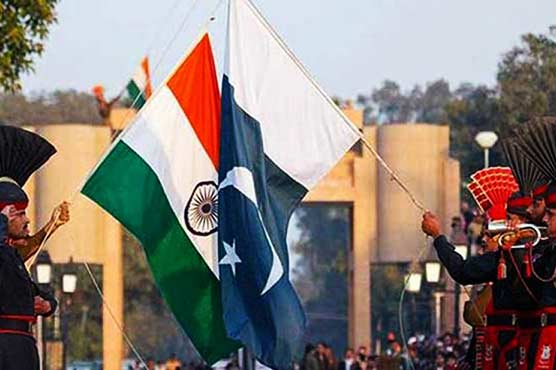The India-Pakistan crisis: What we know

PM Imran and Indian foreign minister Sushma Swaraj have said they do not want to escalate further.
NEW DELHI (AFP) - A string of violent escalations have pushed India and Pakistan to the brink of conflict, sparking global alarm and calls for restraint between the nuclear-armed neighbours.
Here is an explanation of the events so far, and the possible next steps:
What triggered the crisis?
On February 14, 40 paramilitaries were killed in a suicide bomb attack in the Occupied Kashmir, igniting outrage. It was the deadliest attack there in three decades.
Kashmir has been a major flashpoint since the end of British rule in the subcontinent in 1947. A ceasefire line divides it between India and Pakistan.
India has 500,000 troops stationed in the region.
How did India react?
Prime Minister Narendra Modi threatened a "jaw-breaking" response after the bombing. New Delhi demanded action from Islamabad.
On February 26, Indian warplanes crossed the Kashmir ceasefire line into Pakistani airspace, dropping payloads on what New Delhi claimed as a large militants camp.
Islamabad confirmed the incursion and the dropping of payloads in Pakistani territory, a few kilometres outside the part of Kashmir it controls.
But it said New Delhi’s claim of killing scores of militants was "self-serving, reckless and fictitious".
What was Pakistan’s response?
An infuriated Islamabad vowed retaliation after the raid, India’s first use of air power on Pakistani soil since the two fought a war in 1971 -- when neither had nuclear weapons.
On February 27, Pakistani jets flew across the Kashmir ceasefire line as a show of strength, hitting open spaces after locking on to military targets.
Pakistan said it downed two Indian jets, and detained one of their pilots. New Delhi confirmed the loss of one of its planes. India has demanded the "immediate and safe return" of the pilot.
As tensions reached a level not seen in years, Pakistan closed its airspace completely.
What happens next?
The crisis has sparked alarm across the world, with major powers urging the two nuclear-armed rivals to act with restraint.
Both sides have sought to play down the threat of war -- Pakistani Prime Minister Imran Khan and Indian foreign minister Sushma Swaraj have said they do not want to escalate further.
"If India were to... retaliate again, that could really take things to another level," Michael Kugelman of the Wilson Center told Bloomberg TV.
But the fact that Pakistan has one of its pilots "may limit its options and may make it a bit more cautious".
While there is international pressure to avoid a plunge into full-blown war, there may be pressure within India to not let Pakistan have the last word.

